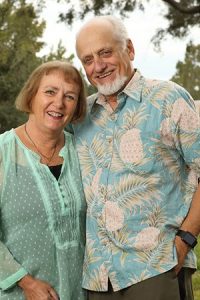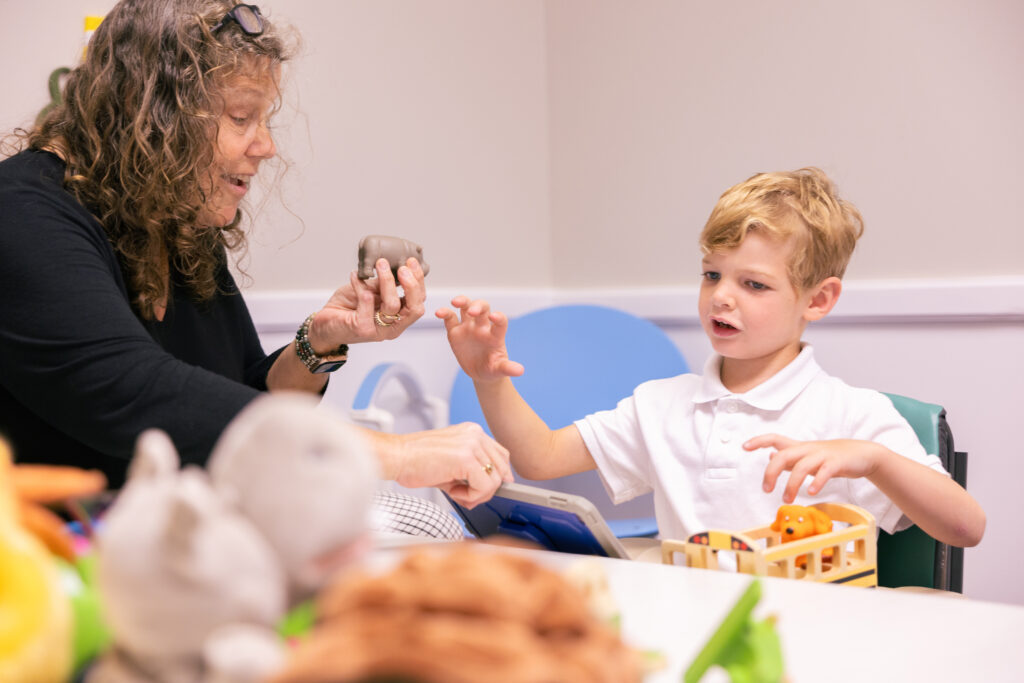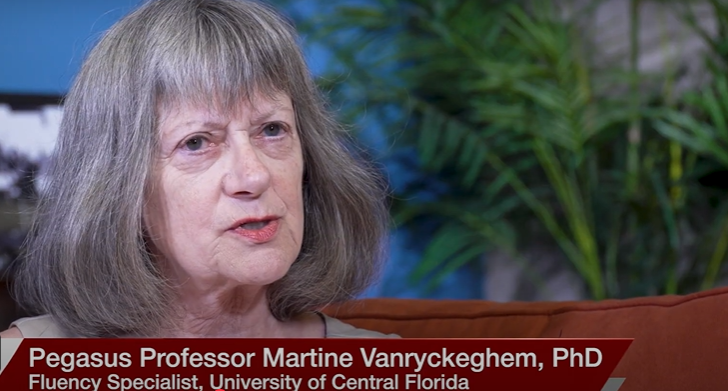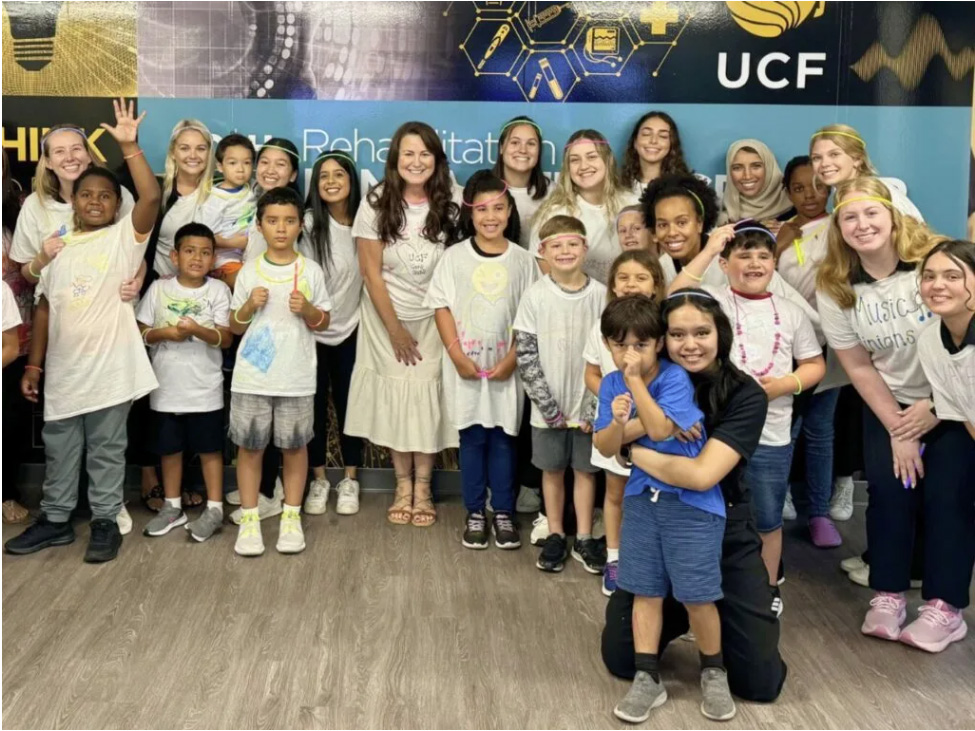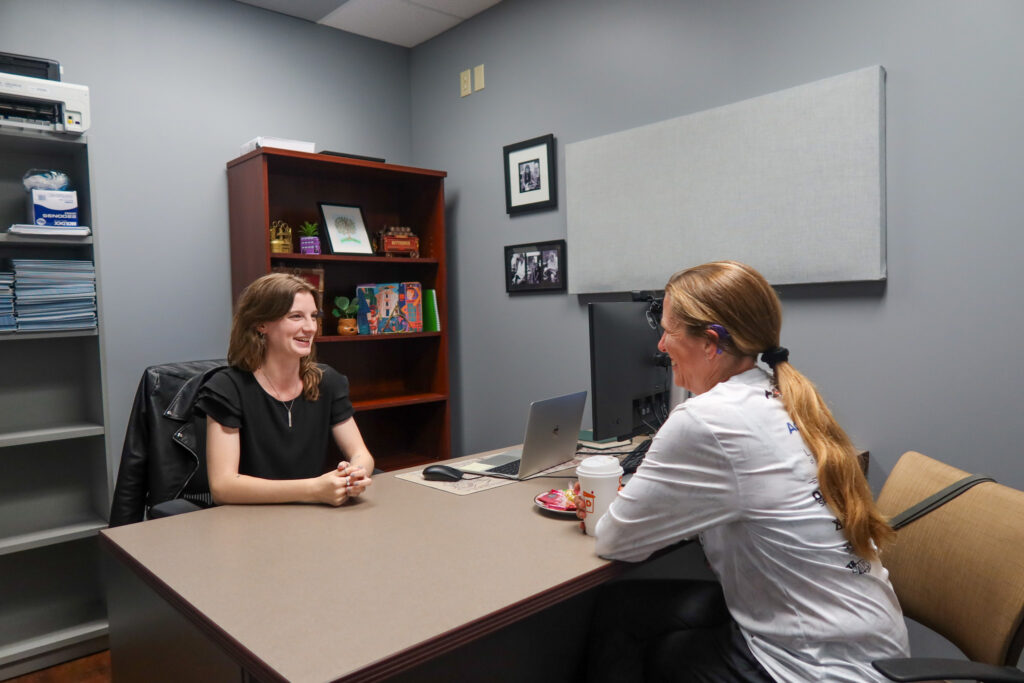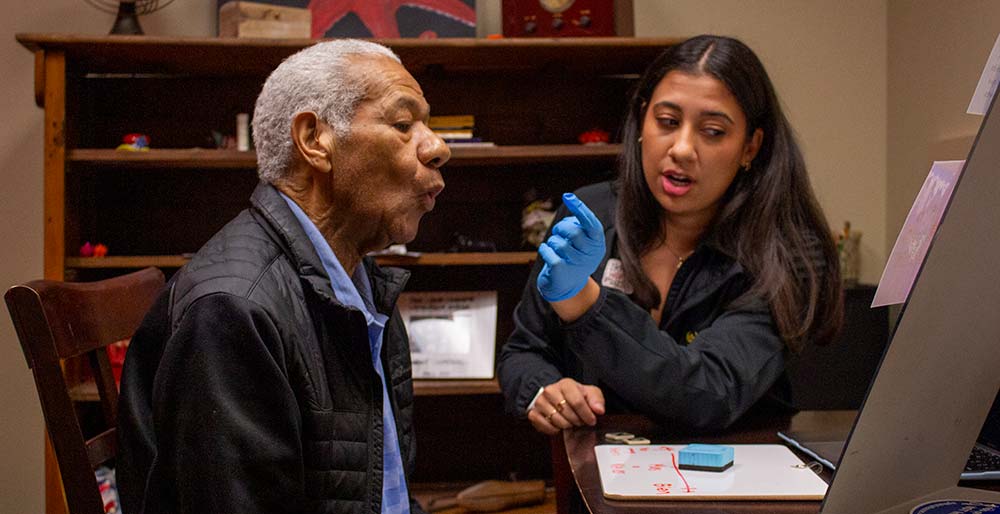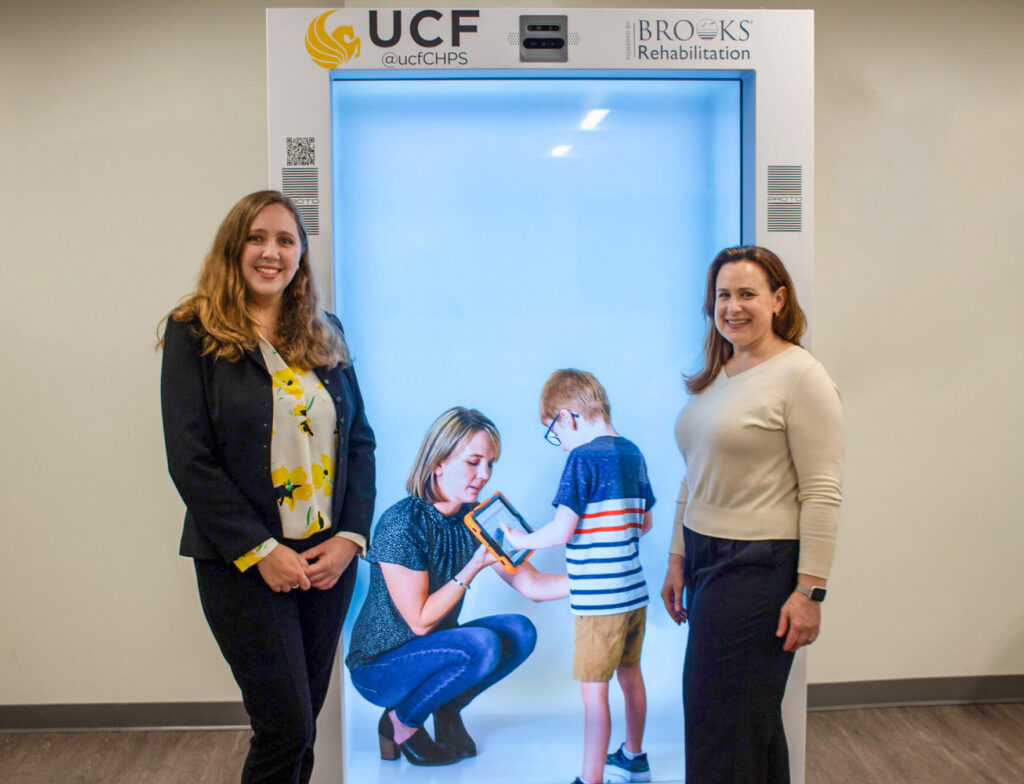The silence of aphasia — a disorder that results from damage to parts of the brain that control language and speech — has the power to destroy lives. But through the caring and compassionate clinical educators at UCF’s Aphasia House, people are finding their voice and changing their lives for the better. Below learn how client Marla Barrett and her husband, Dan, have benefited from the intensive outpatient program.
When Marla Barrett had a near-fatal stroke earlier this year, her husband, Dan, was understandably devastated. Marla spent two days in an Arizona intensive-care unit as Dan, a retired educator, heard the grim news from her physicians that Marla, an intelligent, well-spoken former school district administrator, would likely have severe speech and communication impairments.
After Marla was discharged from the hospital, she began receiving outpatient therapy, including speech and physical rehabilitation and occupational therapy. It soon became clear, Dan said, that her needs had exceeded what the therapists there could provide, and they recommended that Dan find an intensive speech therapy program.
Dan did his research and found two programs in the United States that offered the type of therapy that Marla needed. He chose Aphasia House, a program of the Communication Disorders Clinic at the University of Central Florida, largely because of its “better location, better results, and it was more economical,” Dan said.
Directed by preeminent aphasiologists, Aphasia House delivers cutting-edge therapy designed for the client to address not only language challenges but also life goals after stroke or trauma. The unique, home-like setting and intensive, four-day-a-week, four-hour-a-day schedule yield markedly better results than typical therapy programs.
Marla’s stroke robbed her of the ability to produce spoken or written language, Dan said. This is called “expressive aphasia,” and although she can speak somewhat haltingly, her comprehension is still intact. Often, people who recover from this type of aphasia will go on to say that they knew what they wanted to say, but could not express themselves.
In those moments where Marla struggles to communicate with her husband of 15 years, Dan said, “It just yanks your heart out.” Still, he knows that Marla is focused on the goal of regaining her voice – she has never been one to feel sorry for herself. “The therapy here fits Marla’s learning style to a tee. When she sees a goal, she sets her mind to it.”
Dan said he and Marla have the utmost respect for Janet Whiteside, the creator and director of Aphasia House. “She is a force of nature,” Dan said. The therapies at Aphasia House are what Dan called a blending of “science and art.”
In one of the therapy rooms known as the “attic,” bookshelves are filled with the kind of tchotchkes one might find in a spare bedroom or, you guessed it, an attic. As Dan hoisted one of the suitcases decorated with travel stickers and luggage tags, he demonstrated for a visitor how the suitcase was more than just a prop – it actually had items tucked away inside, to provide a more substantial experience for clients who might use the suitcase to tell a story.
The ability to tell a story – or “scripting” – was a vital component of Marla’s therapy, Dan said. Using everyday objects or photos, Dan would type out a story or script, and Marla would then repeat Dan’s words on the screen.
And although Dr. Whiteside and her graduate clinicians worked intensively with Marla (with an ever-watchful Dan by her side and learning techniques that could be practiced when they returned home), the most effective tool in their therapy milieu was not found on one of the shelves in the “attic,” or in a cabinet in the “kitchen.” It was Hope.
Dan still chokes up a little when he recalls what Dr. Whiteside told his wife: “‘Marla, you won’t be in therapy forever. Go out into the world and enjoy life as much as you can and as fully as you can.'”
“The people at Aphasia House turned us from someone who had problems into problem-solvers,” Dan said. “They created hope and took away our stress.”
Written by Camille Murawski
